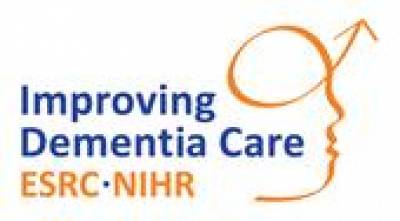PRIDE aims:
People with dementia lose independence because of neurological deterioration, loss of living skills, and negative social consequences such as stigma, social exclusion and disempowerment. This programme aims to promote independence by
- investigating how social and lifestyle changes may reduce risk of dementia, and understanding the social impact of dementia, in order to
- develop and evaluate an effective social intervention to enhance independence and quality of life for people with mild dementia and their carers.
The first aim will be addressed using the information from the English Longitudinal Study of Ageing (ELSA) cohort which has followed up over 10,000 older people biennially over ten years, collecting information about their health, wealth, lifestyle and social activities. Our initial analysis of the data set indicates that the use of email/internet may reduce cognitive decline and that staying physically active can help improve people's daily living skills. We will do further analyses looking at the frequency of dementia amongst older people in the community and the potential impact of changes in lifestyle (eg exercise, use of computers) on how cognitive abilities may change over time. In the next two ELSA surveys (2014 and 2016) we will ask people about their expectations of ageing, including memory loss and dementia, the associated fear and stigma and what would make it more or less likely for them to seek help if needed. We will explore the concerns and expectations people have (eg loss of identity and loss of independence) at the point of referral to memory services, at the point of diagnosis, and for the following two years. We will also investigate their experiences in terms of loss of role and quality of life.
The second aim will be investigated by using an in depth consultation with people with dementia and their carers and an appraisal of the scientific evidence to develop an evidence based social intervention designed to promote independence and support lifestyle changes most likely to benefit cognition (eg physical activity, use of computers) delivered by a dementia advice worker. In a large clinical trial of memory services across the UK, the intervention will be evaluated in comparison to usual care to evaluate potential benefits to independence and quality of life. Lastly, we will determine the best ways to implement the intervention more widely and to publicise the results. We will ensure that there are training and development opportunities for all grades of researcher from PhD students to senior academics, so that we can develop capacity for future research in gerontology and dementia care.
PRIDE Objectives:
- determine social and lifestyle risk factors for dementia in the context of social changes. We will analyse the English Longitudinal Study of Ageing (ELSA) cohort and related international datasets. ELSA has followed up over 10,000 older people biennially over ten years collecting data about their health, wealth, lifestyle and social activities. Our initial analyses indicate that the use of email/internet may reduce cognitive decline and staying physically active can help improve people's daily living skills. Further analyses will assess the prevalence of dementia amongst older people in the community, the possible impact of changes in lifestyle (eg exercise, use of computers) on change over time in independence and cognitive abilities, model the impact of changing lifestyles on the economic consequences of dementia, and compare and contrast the impact of changing lifestyles across countries.
- investigate social attitudes to lifestyle change, cognitive decline, dementia and seeking help for memory problems; and explore the social consequences of memory problems and the diagnosis of dementia in both the ELSA sample and a cohort of people referred to memory services. In the next two ELSA surveys (2014 and 2016) we will ask people about their expectations of ageing and independence including memory loss and dementia, the associated fear and stigma, and what would make it more or less likely for them to seek help if needed. We will develop a large cohort of people with early stage dementia referred to memory services to: map the changing clinical and social picture, to determine stigma, loss of role and other negative social consequences of dementia over time; evaluate the protective effects of positive factors, such as resilience, self efficacy and sense of coherence; and examine attitudes to participation in dementia research. We will develop interdisciplinary accounts of the nature of stigma in dementia and examine how these can be used to promote independence in people with early stage dementia. We will develop and evaluate the psychometrics of negative (eg stigma) and positive (eg self-efficacy) social functioning measures, and evaluate the CASP-1 9 quality of life measure in people with dementia.
- develop and optimise a social intervention to increase independence and quality of life for people with dementia and their carers. People with dementia prefer a menu based approach with interventions tailored to individual needs and preferences. Taking the ELSA results, evidence from the literature, and a participative research process involving consultations with patients and carers, we will coproduce an evidence based social intervention to promote independence, activities of daily living, and quality of life for people with dementia and their families. We will conduct a feasibility study to assess recruitment rates, practicality of outcomes, attrition, estimate possible treatment effect with confidence intervals; how the intervention can be delivered successfully, and develop a delivery method based on best practice implementation.
- conduct a randomised controlled trial of the social intervention to evaluate clinical and cost effectiveness and determine what is needed for widespread implementation.
- fast track capacity development for future research in dementia care by a programme of training and development opportunities for all levels of researcher.
 Close
Close


